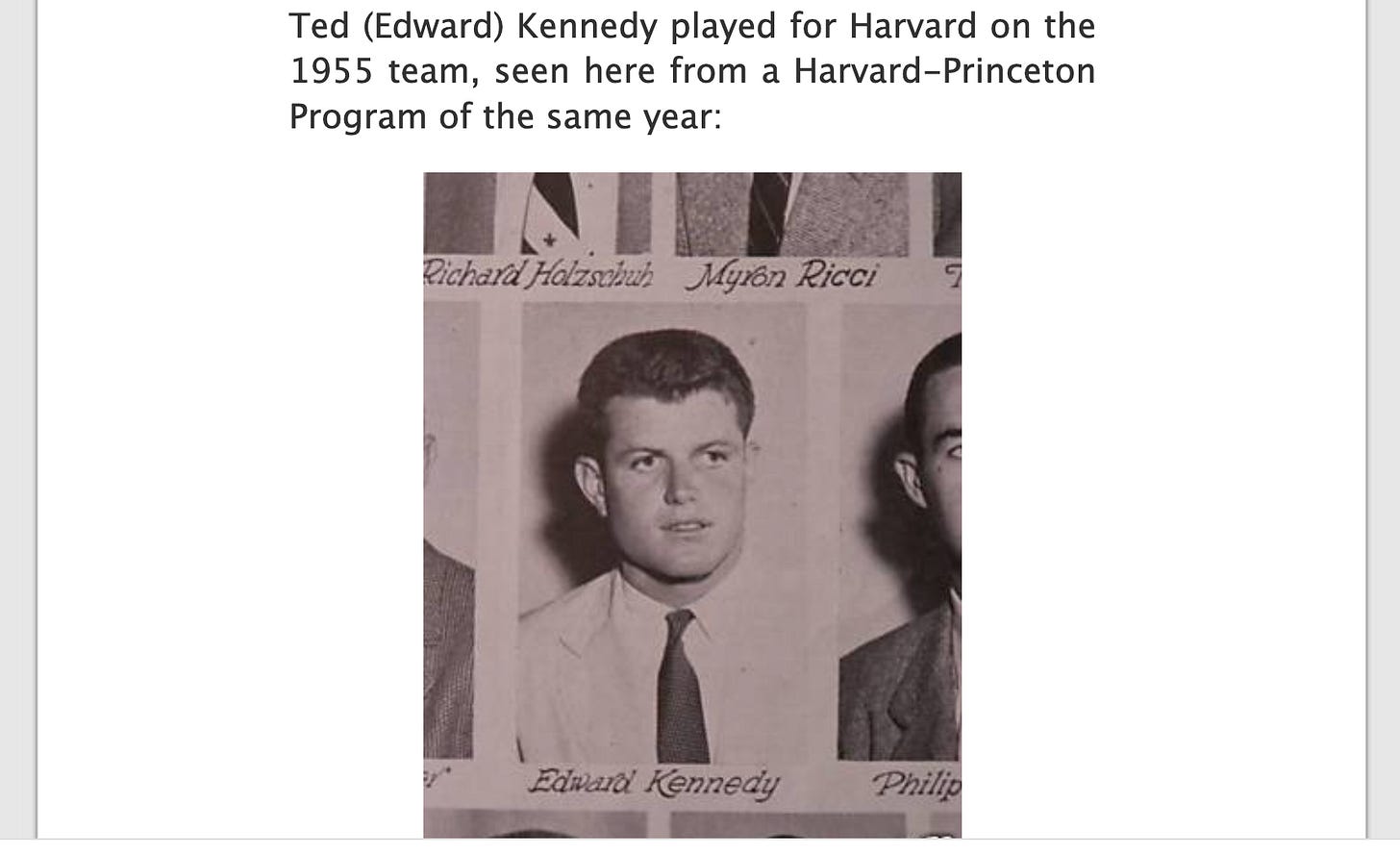How to Succeed at Harvard Without Really Trying
"Harvard Students Skip Class and Still Get High Grades, Faculty Say"
From the New York Times news section:
Harvard Students Skip Class and Still Get High Grades, Faculty Say
Many students don’t do the reading and don’t speak up in class, according to a report. Now, professors are trying to change a campus culture they say hurts achievement and stifles speech.
By Anemona Hartocollis
Anemona is a long time iSteve favorite for sheer syllable count.
Oct. 6, 2025
Harvard University is one of the most difficult schools to gain admission to, with the school turning away some 97 percent of applicants every year.
But once they get in, many of its students skip class and fail to do the reading, according to the Classroom Social Compact Committee, a group of seven faculty members that produced a report on Harvard’s classroom culture that has been fueling debate since it was released in January.
Keep in mind that Harvard has long been particularly notorious for lousy undergraduate teaching. When I applied to Harvard in 1975, I was interviewed by a recent alumnus. He mentioned that as an undergrad he’d taken classes from Henry Kissinger (then the Secretary of State and one of the most famous people on Earth), Daniel Patrick Moynihan (then the UN ambassador and future three term Democratic Senator from New York), John Kenneth Galbraith (the best-selling economist of the era), and David Riesman (sociologist famous for The Lonely Crowd).
“Oh, wow,” I burbled, “They must have been great lecturers.”
“No, they were terrible,” he replied. “They were always canceling class to dash off to Washington. Do you think professors at that level care about undergrads?”
When they [the students, not the professors] do show up for class, they are focused on their devices, and are reluctant to speak out. Sometimes it is because they are afraid of sharing ideas that others will disagree with. But often, they have not read enough of the homework to make a meaningful contribution, the report continued.
One of Jeff Bezos’s wilder management innovations at Amazon is that after frustrating years of expecting his busy managers to read memos before meetings, he gave up and now mandates that the first ten minutes of each meeting be devoted to everybody silently reading the memo explaining what the meeting is about.
Rampant grade inflation allows them to coast through anyway, it concluded.
That means many students graduate without having benefited from talking very much with their teachers and peers, and they stay stuck in ideological bubbles, unwilling or unable to engage with challenging ideas.
Conservative critics have long argued that Harvard and other elite institutions have allowed liberal bias to dominate their campuses, effectively censoring free expression. Those concerns have fueled a Republican effort to remake college campuses in recent months. But even before Mr. Trump took office, the Harvard group’s report seemed to acknowledged that the critique had merit.
“At Harvard, as nationwide, the question of whether people can express their political opinions without fear of social or institutional sanction has attracted particular attention,” the report said. …
Classrooms are supposed to be places were there can be a free exchange of ideas, the committee observed in its report. Yet in the spring of 2024, only a third of Harvard seniors said they felt completely free to “express personal feelings and beliefs about controversial topics,” down from 46 percent the year before.
It’s not like the spring of 2023 was some golden age of free speech over the racial reckoning or covid. But the series of unfortunate events beginning October 7, 2023 left lots of left of center Harvard students feeling that their views on Gaza and Israel, pro or con, were being stifled.
Students were afraid, the report said, of being socially ostracized. They were embarrassed about possibly sounding stupid. They felt that they had to align their viewpoints with their professor’s in order to get a good grade. And they chose their classes based on the likelihood of getting a good grade, rather than out of intellectual curiosity.
Some of these trends have been underway since the 1960s, but others got a lot worse during the Great Awokening.
Perhaps they did not need to bother. Grade inflation, already a serious problem before the pandemic, has soared, according to Amanda Claybaugh, Harvard’s dean of undergraduate education. In 2015, about 40 percent of grades awarded at the university were A’s; now the figure is about 60 percent, she said. Half of that increase happened during remote instruction.
Grade inflation didn’t actually hurt too much when more or less everybody switched from and A, B, C, D scale to an A, A-, B+, B scale.
If you are, say, Teddy Kennedy’s grandchild at Harvard, then everybody knows that these days your B is the equivalent of your grandfather’s D, so it’s not that big of a deal.
But where do they go next with grade inflation?
Paywall here.



